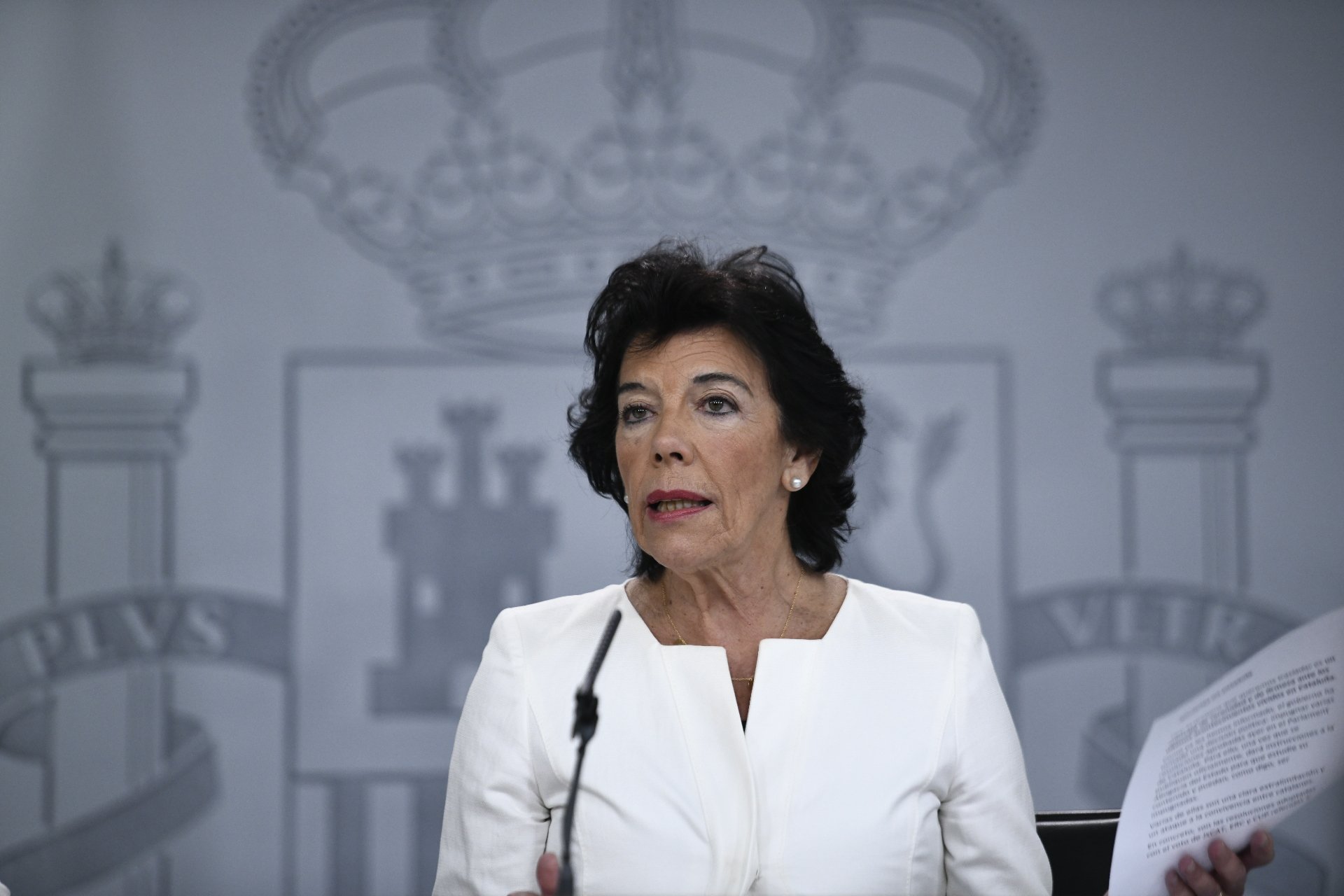The Spanish government has decided to challenge in court three of the resolutions approved yesterday by the Catalan Parliament following its annual general policy debate. One of the resolutions called for the Civil Guard to withdraw from Catalonia, one "asserts the legitimacy of civil and institutional disobedience, as tools to defend [...] civil, political and social rights" and one resolves to ask for an "amnesty" for the imprisoned pro-independence leaders if convicted by the Supreme Court next month.
In her press conference following today's cabinet meeting, minister and government spokesperson Isabel Celaá said they are an "attack on social harmony between Catalans" and warned that the government "is not prepared to consent to any attack against the State or the Constitution".
Celaá rejected remarks by Catalan president Quim Torra accusing the Spanish state of wanting to criminalise the independence movement and praised the Civil Guard's "discrete" operation earlier this week. She said that the Constitution is, where necessary, the tool to defend the system in the face of those who want to violate it.
The spokesperson made it clear that the government is not going to abandon its proposal for "dialogue", as long as the option of a referendum is off the table, as the way to solve a problem that she said "concerns everyone and could swallow a generation of Spaniards and Catalans in the cycle of constant division".
On the other hand, she doesn't believe the situation would justify enacting article 155 of the Constitution and suspending Catalonia's autonomy again. This is because no laws have so far been violated, nor has "the general interest been gravely harmed", as yesterday's resolutions are not legally binding.
Torra's response
President Torra later reacted to the spokesperson's announcement, saying the suggestion of challenging the resolutions "is an attack on democracy". He added a link to a statement agreed yesterday between pro-independence parties and En Comú in which they "demand the end of the repression and the release of the people persecuted and held for their political ideas". The parties also say they "reject violence" and support pursuing "democratic paths to achieve legitimate political objectives".
Benvolguda Ministra en funcions, li adjunto la resolució de la Junta de portaveus del Parlament de Catalunya, seu de la sobirania del poble català, votada pel 60% de la cambra, JxC, ERC, Comuns i CUP. La seva impugnació és un atac a la democràcia https://t.co/jcx7udg1CQ https://t.co/c0TsTbSLGT
— Quim Torra i Pla (@QuimTorraiPla) 27 de setembre de 2019

